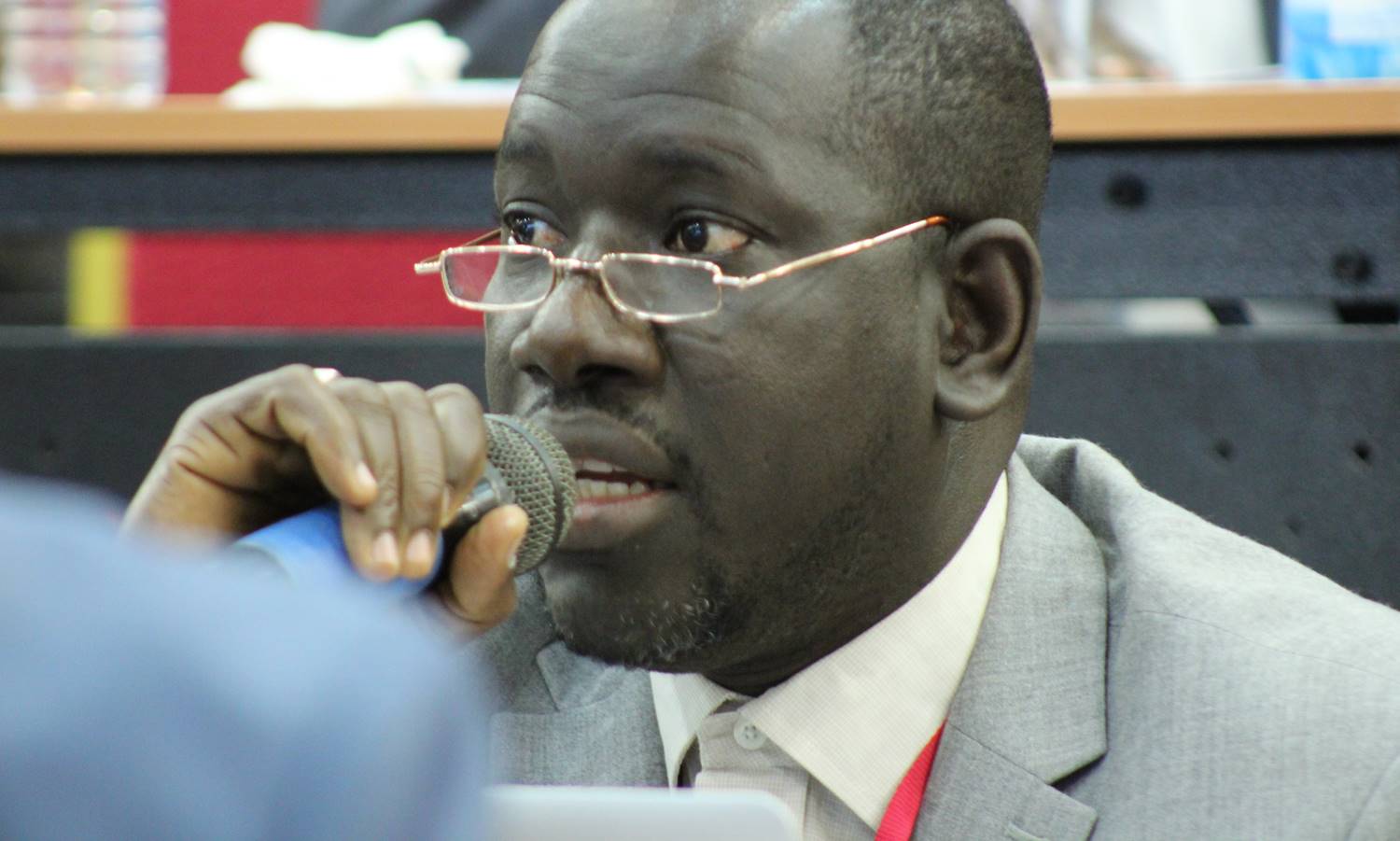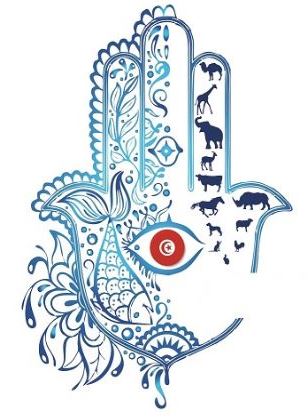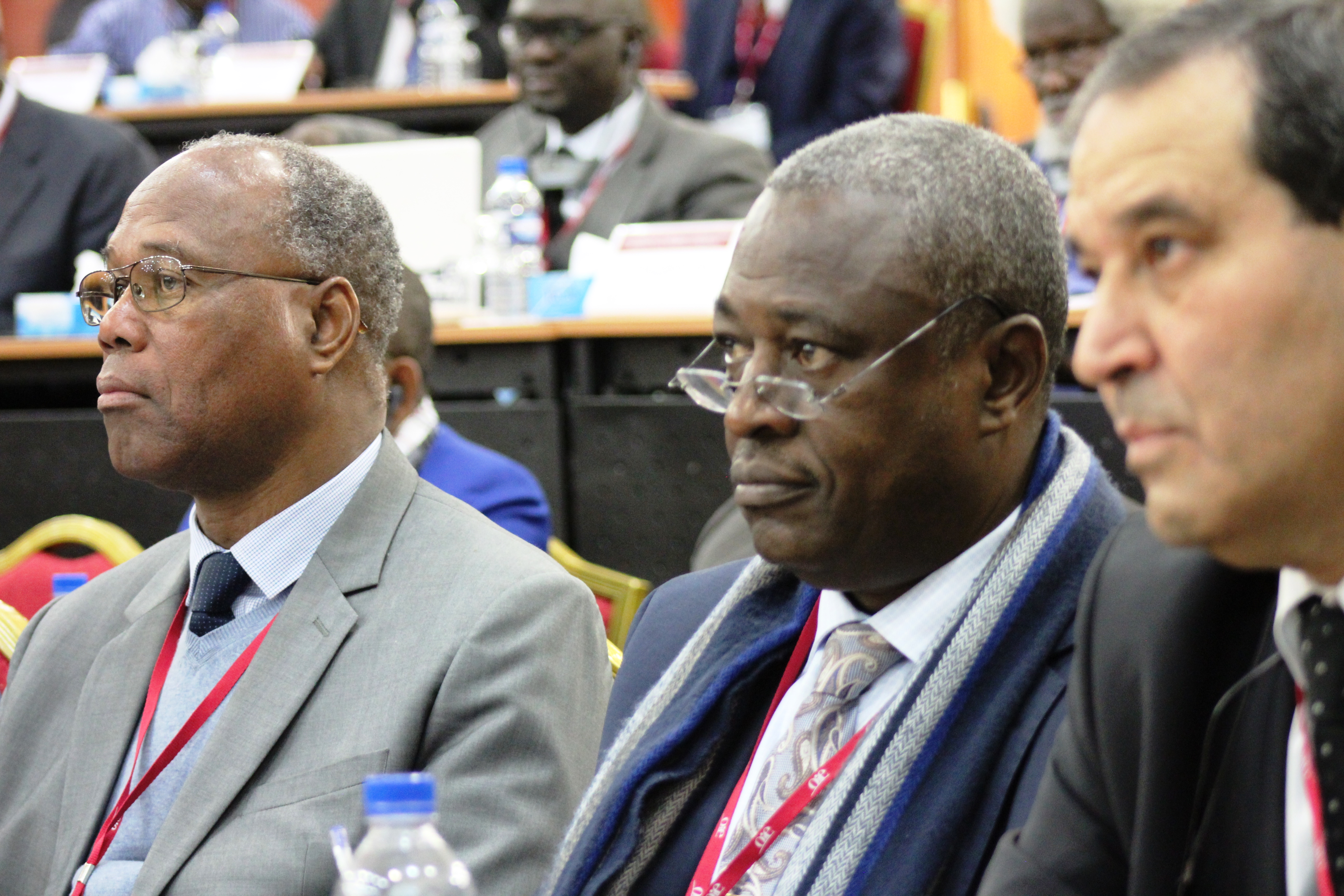
Conference Regional Commission Hammamet Tunisia
On Friday, the curtain fell on the 23rd Conference of the OIE Regional Commission for Africa, which took place in Hammamet, Tunisia, from 25 February to 1 March 2018.
The Conference, attended by some 150 participants (40 African countries represented), was chaired by Dr. Malek Zrelli, OIE Delegate for Tunisia, along with Dr Monique Eloit, OIE Director General, Dr. Mark Schipp, OIE Delegate of Australia and President of the OIE (Council and World Assembly), Dr. Karim Tounkara, OIE Regional Representative for Africa, as well as Dr. Honoré Nlemba Mabela, OIE Delegate of the Democratic Republic of Congo and President of the OIE Regional Commission for Africa.
The inaugural meeting was held in the conference hall of the Diar Lemdina Hotel in the Hammamet suburb of Yasmine and was attended by the Minister of Agriculture, Water Resources and Fisheries of Tunisia, Hon. Samir Taïeb and the Minister for Agriculture, Rural Development and Fisheries of Algeria, Hon. Abdelkader Bouazghi and the Minister of Agriculture, Animal and Marine Resources of Libya, Hon. Aboubakr Mansouri who delivered welcome addresses to the audience.
The Tunisian Minister , in his speech, reiterated the crucial role of OIE in improving and support animal health activities in its member countries and highlighted the importance of agriculture and animal health related matters for Tunisia as well as the emerging challenges that are facing the North African region such as climate change. He stated that the prevention of transboundary animal diseases requires the development of a regional approach in the Maghreb region and international cooperation in view of the rapid spread of diseases and their impact on animal and agricultural production, including the risk to human health. He also mentioned the elaboration of the strategy for the Veterinary Services in the horizon of 2030 along with the current activities to eradicate PPR and control a serious threat for the country such as rabies. He, finally, announced the candidature of the National Centre for Animal Diseases Surveillance (Centre National de Veille Zoosanitaire or CNVZ) as OIE Collaborating Centre for training.
The Algerian Minister, in his speech, mentioned the significant role of OIE and reiterated the support of Algeria to the activities promoted by the OIE to improve animal health and welfare. He also briefly cited the current PPR and FMD outbreaks occurring in Algeria and the animal health measures being implemented to stop the spreading of the diseases especially the vaccination campaigns.
The Libyan Minister highlighted the huge potential of agriculture and animal production in the country but also mentioned the difficulties that the country is facing. However, he stated that a strategic plan will be elaborated through his mandate to develop activities to improve the animal health and production in Libya by considering the OIE tools and assistence that could support such strategy.
The presence of the Deputy Minister for Livestock and Fisheries on Tanzania, Hon. Ulega Abdallah Hamis was acknowledged.
Further opening speeches were delivered by Prof. Ahmed El-Sawalhy, Director of AU-IBAR, Dr. Mark Schipp, OIE Delegate of Australia, President of the OIE Council and of the World Assembly of OIE Delegates since May 2018, Dr. Karim Tounkara, OIE Regional Representative for Africa and Dr Monique Eloit, OIE Director-General of the OIE. The OIE Director-General, in her address, thanked the Government of Tunisia for hosting the 23rd Conference of the OIE Regional Commission for Africa which remains an important institutional event for the African continent. She highlighted the challenges that the veterinary services in Africa and around the world to control diseases such as foot-and-mouth disease, PPR and African swine fever but, in parallel, reiterated the importance of continuing efforts and moving forward in order to obtain countries and zones free from these diseases. She pointed out that African continent suffers from a lack of human resources within the Animal Health Services and, therefore, she called countries – through the voice of his/her OIE Delegate – and donors to improve such situation because it is vital to better control animal diseases. The Diretor General enphasised the role of PVS tool and encouraged the OIE Delegates to take benefits of the outcomes of these reports to sensitise their hierarchy and other relevant ministers (e.g. finance) to improve the good governance of Veterinary Services in their respectives countries.
The 39 African countries represented at the Conference were Algeria, Angola, Benin, Botswana, Burkina Faso, Cameroon, Central African Republic (CAR), Chad, Comoros, Cote d’Ivoire, Democratic Republic of the Congo (DRC), Egypt, Equatorial Guinea, Eritrea, eSwatini (formerly Swaziland), Ethiopia, Gabon, Gambia, Ghana, Guinea, Guinea-Bissau, Kenya, Lesotho, Liberia, Libya, Mali, Mauritania, Morocco, Mozambique, Namibia, Niger, Nigeria, Republic of Congo, South Africa, South Sudan, Tanzania, Uganda, Zimbabwe and the host country, Tunisia.
Monique Eloit, OIE Director General
Moreover, several international and regional organisations, donor agencies and other observers participated in the Conference:
Represented at the meeting were also esteemed members of various OIE decision-making and scientific advisory bodies, such as Emmanuel Couacy – Hymann (President of the OIE Biological Standards Commission), and Johan Oosthuizen and Benson Ameda (OIE ad-hoc group on VPP).
The first day’s opening session was concluded by an elaborate joint presentation of the OIE President and the OIE Director General on the broad approach to developing the next (7th) OIE Strategic Plan (2021 – 2025) and the first set of priorities, to be further explored with the help of Price Waterhouse Coopers (PWC) in months to come. This was followed by a presentation by Dr. Honoré Nlemba Mabela, OIE Delegate of the DRC and current President of the OIE Regional Commission for Africa, on the contribution of the Africa region to the ongoing 6th Strategic Plan (2016 – 2020) and the design of the 7th Strategic Plan.
The election of the bureau of the Conference and adoption of the agenda were followed by a first technical presentation made by Dr. Montserrat Arroyo Kuribreña, on behalf of the OIE World Animal Health Information and Analysis Department (WAHIAD), focusing on 6 important diseases which affected African countries in the past two years, since the last Regional Conference held in Namibia in 2017. She presented the analysis of the animal health situation in the African region (2017-2018) concerning peste des petits ruminants (PPR), foot-and-mouth disease (FMD), rabies, Rift Valley fever (RVF) and contagious bovine pleuropneumonia (CBPP) as well as progress on the future OIE-WAHIS system, OIE’s next generation animal diseases information system, to be launched in a few months’ time.
Two Technical Items were presented during the Conference namely:
Both technical items were followed by debates and interactions between the speakers, OIE Delegates, and technical experts, whether national, regional or international.
Several other issues involving or affecting Member Countries of the region were presented and debated:
The session on the evolution of the PVS Pathway and its implications for Africa was delivered as a series of presentations by OIE and AU officials, followed by a panel discussion with OIE Delegates from Burkina Faso, Chad, Congo (Rep.), South Africa and Zimbabwe.
In addition, a poster session was organised, supporting some of the themes tackled by formal presentations during the plenary sessions. Posters presented were submitted by OIE Technical Departments, OIE Regional Representations, OIE Collaborating Centres and Reference Laboratories and OIE Member Countries, and dealt with such issues as the avian influenza, surveillance of camel diseases, foot-and-mouth disease (FMD), peste des petits ruminants (PPR), PVS, rabies, veterinary paraprofessionals (VPP) and many more.
The fourth day of the meeting was dedicated to field visits organised by the Tunisian host, whereas the fifth and last day allowed, Dr Malek Zrelli, to present the Strategic Plan of the Tunisian Veterinary Services in the horizon of 2030 as well as the details about the candidature of the National Center for Animal Diseases Surveillance (CNVZ) to be recognised as an OIE Collaborating Centre, a proposal supported by the member countries of the Africa Regional Commission.
A session was also dedicated to discuss the veterinary research networks, calling for an active involvement of veterinary services and collaboration with research institutes in Africa in order to outline priority matters for research and achieve a better use of the results.
These and other resolutions and recommendations adopted in Hammamet will be presented to the next World Assembly of Delegates of the 183 OIE Member Countries in May 2019 for endorsement and then for implementation at regional and global level.
The Government of Tunisia, ably represented by the OIE Delegate, Dr Malek Zrelli (Directorate General of Veterinary Services), generously hosted the Conference, with the support of staff from the OIE Headquarters and the OIE Regional and Sub-Regional Representations for Africa, in particular the Representation of the OIE for North Africa, based in Tunis.
The next (24th) Regional Conference will likely take place in Johannesburg, South Africa, in February 2021.
All pictures (c) P. Bastiaensen (oie) 2019





